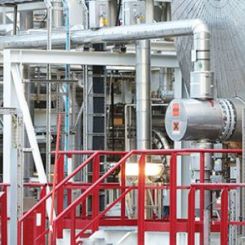Pumps are becoming more expensive to produce and maintain, making it more costly and inefficient to replace parts when things go wrong. With some pumps costing thousands of dollars-not including associated downtime costs-engineers need to ensure their pump systems are properly maintained. Choosing a suitable lubricant has become increasingly important as one of the least expensive and most reliable ways of helping to maintain parts as long as possible. In particular, hydraulic systems rely on consistent pump performance. When anything relating to the hydraulic system is modified-temperature, location, pressure, oil thickness, or internal surface roughness-lubricant performance can be affected. Increased pressure and temperature can drastically affect the lubricant viscosity, and changes to viscosity can affect the way the pump operates. Altering viscosity can also change the hydraulic system's efficiency. It is important that plant engineers work with their lubricant provider to make calculations about what will happen to the lubricant when modifications are made. What factors should engineers consider when choosing a lubricant? Engineers must consider the lubricant part of the entire hydraulic system as well as the needs in the application. Is fire resistance needed in the event of a high-pressure hose leak so fluid will not propagate a flame? Is there the potential for contact with food such that a food-grade product would be required? Would there be potential damage to the environment in the event of a hose rupturing? The lubricant's properties, as well as the specific application, must be considered when choosing a pump lubricant.
12/17/2011

